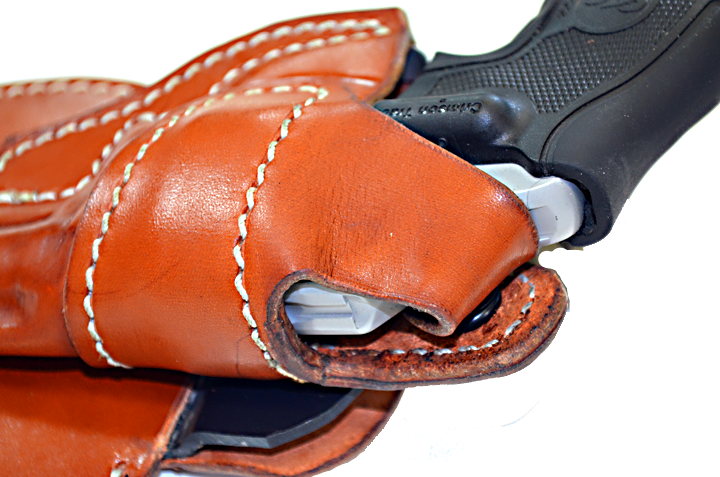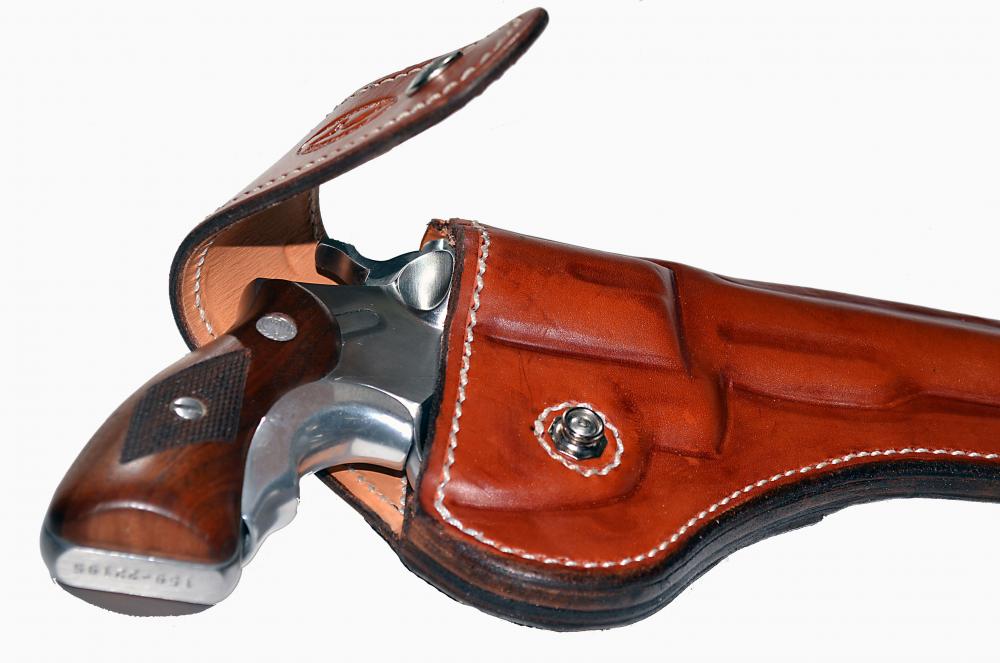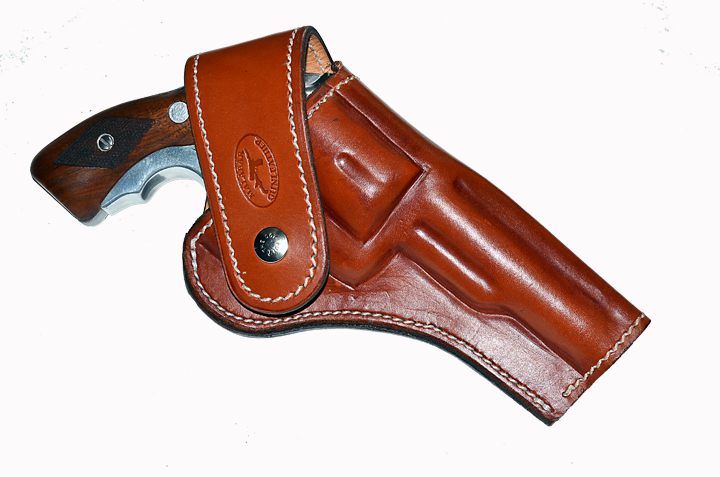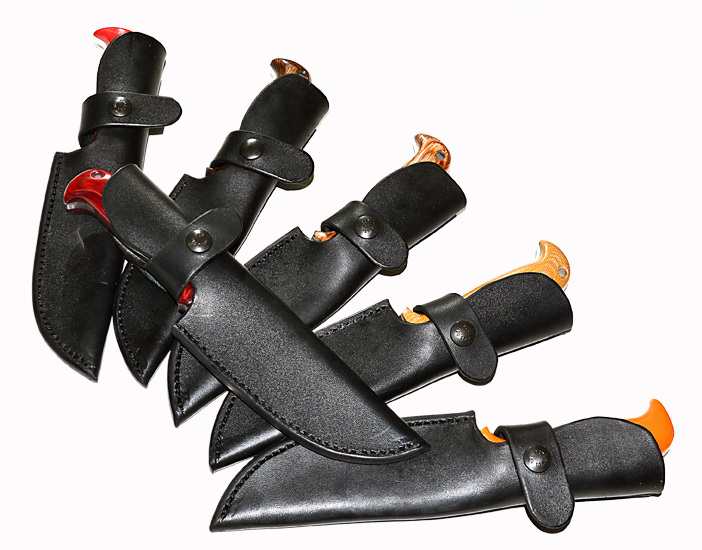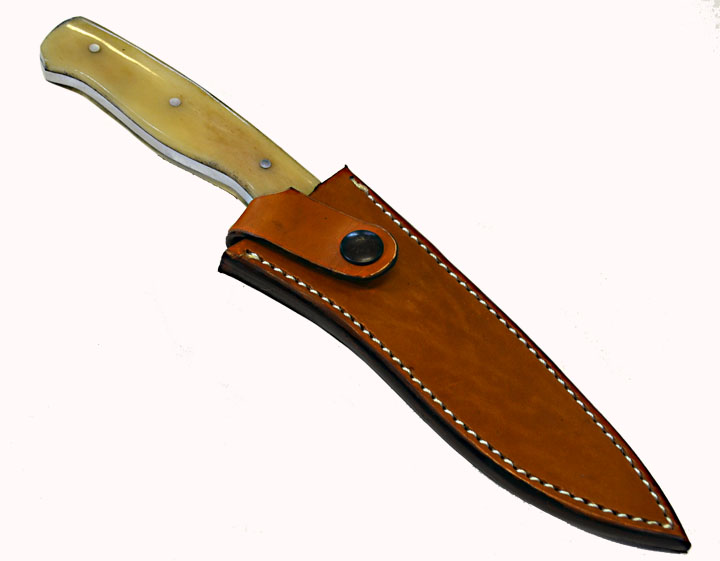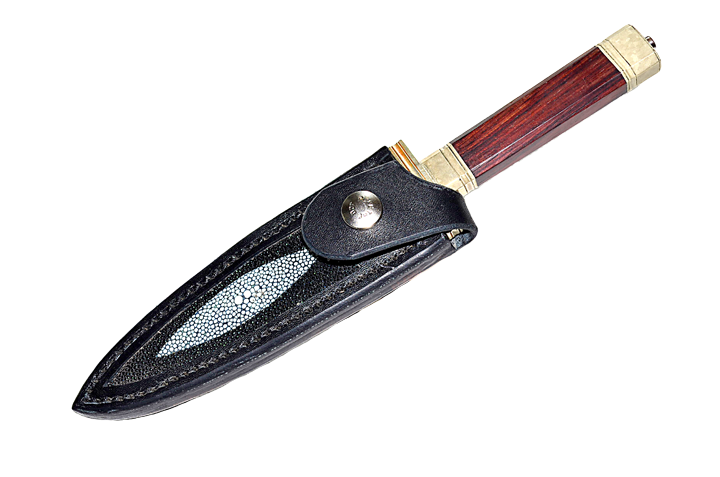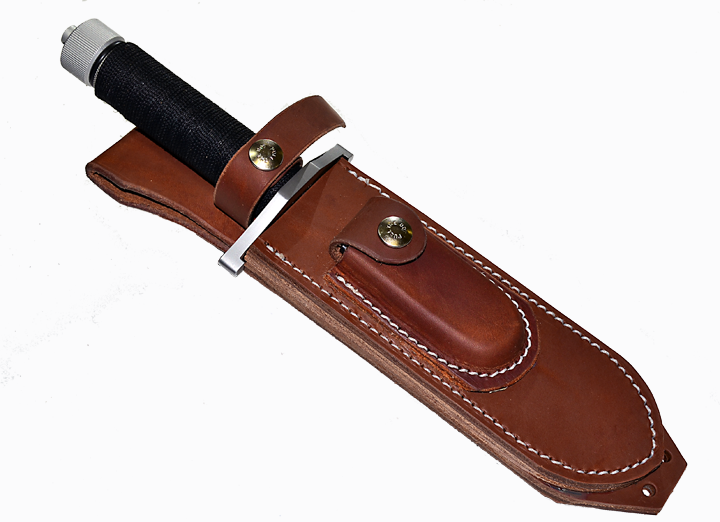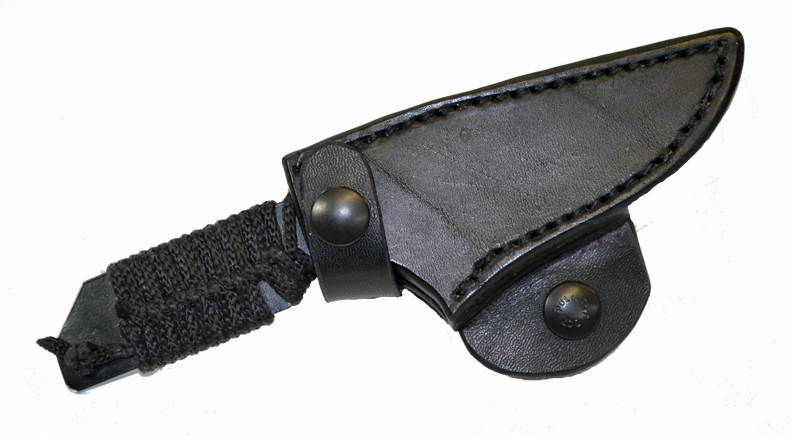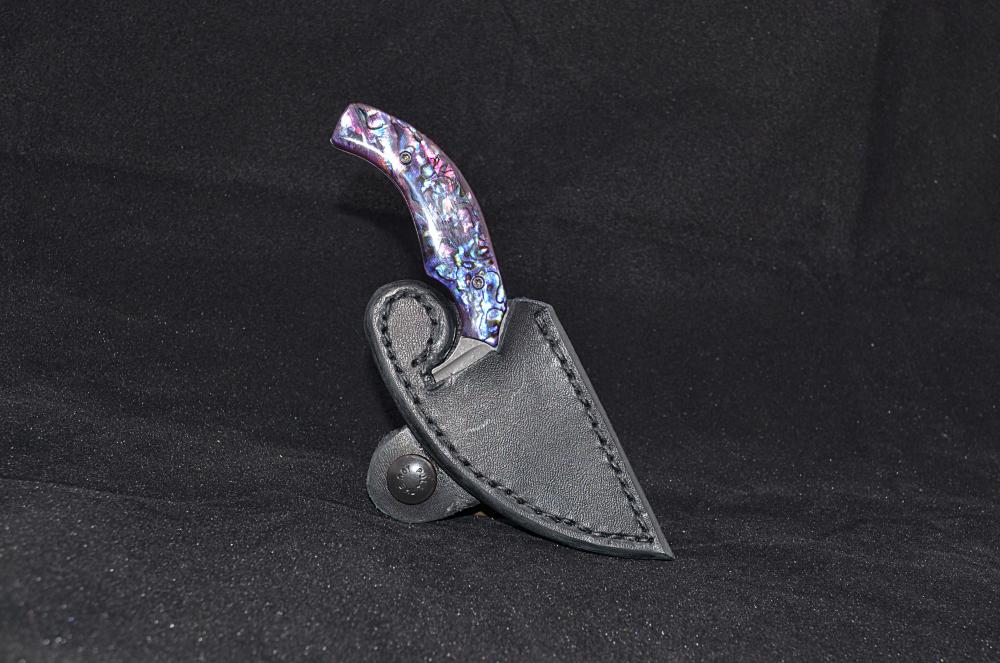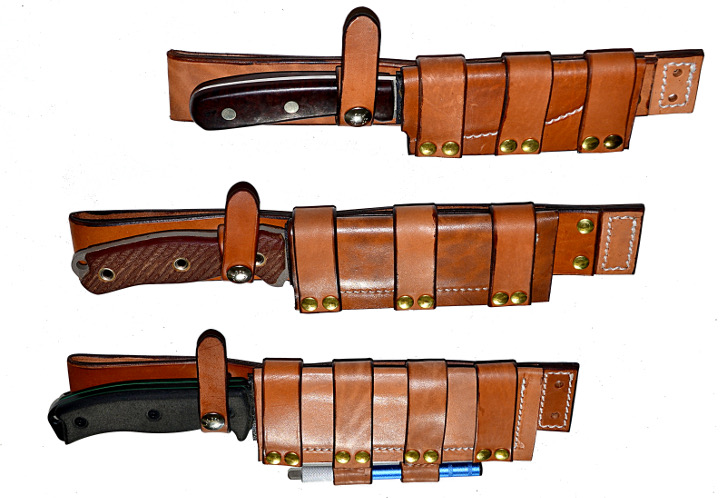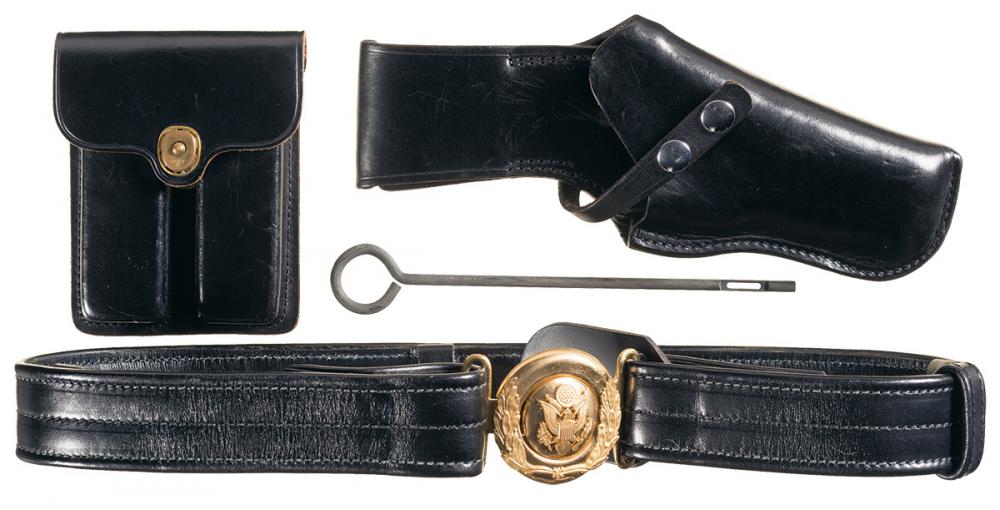-
Posts
446 -
Joined
-
Last visited
Content Type
Profiles
Forums
Events
Blogs
Gallery
Store
Everything posted by malabar
-
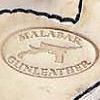
Review- HolsterMolds prop pistols
malabar replied to CaptQuirk's topic in Gun Holsters, Rifle Slings and Knife Sheathes
Yep, that's where we're at.- 19 replies
-
- holstermolds
- prop gun
-
(and 1 more)
Tagged with:
-

Newbie. First few holsters
malabar replied to lansacoder's topic in Gun Holsters, Rifle Slings and Knife Sheathes
Those are excellent for first steps. I predict excellent things from you... -

Review- HolsterMolds prop pistols
malabar replied to CaptQuirk's topic in Gun Holsters, Rifle Slings and Knife Sheathes
Capt, where are you located? tk- 19 replies
-
- holstermolds
- prop gun
-
(and 1 more)
Tagged with:
-
Josh, just lovely -- as usual.
-

Poll on Revolver Safety Strap
malabar replied to JLSleather's topic in Gun Holsters, Rifle Slings and Knife Sheathes
You mean you don't carry cocked and locked? Sorry, bad joke. Almost all of my holsters are for ccw. When I use a thumbstrap, it goes over everything.- 7 replies
-
- revolver holster
- safety strap
-
(and 1 more)
Tagged with:
-

pancake knife sheath question. Welt?
malabar replied to Boriqua's topic in Gun Holsters, Rifle Slings and Knife Sheathes
ALWAYS put a welt in your knife sheaths. If you do not, the edge will saw through your stitching. This is why cheap sheaths always have rivets along the stitch line. When the stitching gets sawed through, it will still hold together. -

Tell me about your "Hot Box"
malabar replied to Dwight's topic in Gun Holsters, Rifle Slings and Knife Sheathes
I use an actual oven. I have a convection oven that I use for all of my leather work. I put the pieces on wooden racks inside of it. Set it to 170 (the lowest temp) and set it to run for 24 minutes. At the end of the cycle, I check the pieces, put them back in the another 20 minutes or so, and voila, they're done. tk -

Knife Sheath Leather?
malabar replied to TheShiek2008's topic in Gun Holsters, Rifle Slings and Knife Sheathes
All depends on what kind of a sheath you're making. I've made sheaths out of horsehide, 10-ounce veg tan, 14-ounce bridle leather and exotics. I sometimes split the leather down to 4-5 ounces in sheaths with several layers. You have to use the weight and type of leather that's most suited to your design. tk -
Have you tried buckleguy.com?
-

IWB Holster for Sig P229
malabar replied to particle's topic in Gun Holsters, Rifle Slings and Knife Sheathes
Excellent work. Very clean, and the natural leather hows every bump and flaw -- and you don't have any. tk -

python knife sheath
malabar replied to supercub's topic in Gun Holsters, Rifle Slings and Knife Sheathes
exquisite! tk -

Bushcraft knife sheath
malabar replied to kaani's topic in Gun Holsters, Rifle Slings and Knife Sheathes
Just curious: What makes this a "bushcraft" sheath? -
So we principally make gear for civilian CCW -- super heavy-duty belts, OWBs and IWBs with steel-reinforced throats, etc. But my son does gun shows for us occasionally, and he's always promising someone that we'll (meaning me) take on some, er, interesting, job. Like the time he promised some fellow I could renovate a 100-year-old leg-of-mutton shotgun case. I added a few new blisters from the hours I spent hand-stitching with my arm up inside the case. So at a show he meets some fellow who's always wanted the rare WWII US Officers 1911, belt and holster set. He found a belt and mag pouch, but needed the gun and holster. So he had someone make him a gun, and my son promised we'd make him a holster. The original set is in the first picture. The pictrues that follow show the customer's gear. He's a happy camper. I originally made the holster out of the usual drum-dyed Hermann Oak we make much of our gear from, but it just didn't look right. The Bucheimer holster was made out of some extra heavy leather with a real glossy finish. So after chewing on it for a while, I remade the holster out of 14-ounce black bridle leather, and then finished it with a coat of Angelus black acrylic leather finish. It really had the look of an original Bucheimer. The customer is a happy camper and sent the pictures.
-
I think you'll find that the ones that you make are better quality. I make mine from leather with a kydex backbone, but you could make the whole thing out of kydex if you prefer. The real trick is in the way that you attach the paddle to the holster.
-
Ah, the joys of a family-run business. My son was working at a gun show in Tampa and promised a collector that we could make him a replica of the Bucheimer US Army Officer's holster for his Colt Commander. I initially made it out of the 10-ounce, drum dyed Hermann Oak cowhide I use for most of our concealed gear, but it just didn't have the look and feel of the original. After putzing around a bit, I remade the holster out of the 14-ounce bridle leather we use for belts. Had to taper some of the pieces with a splitter. When it was all together, it looked pretty good, but it didn't have the shiny finish of the original, so I topcoated it with Aneglus black acrylic leather finish. Didn't look bad at all. Got a note back today from the client who is quite pleased -- says it fits right in with the original pieces. Never would have though bridle leather would be a good choice for this style of holster.
-

Horizontal Knife Sheath Retention
malabar replied to krominix's topic in Gun Holsters, Rifle Slings and Knife Sheathes
There's another way to do it. Line the holster with thin kydex. Bring the kydex all the way up so that it extends past the heel of the blade toward the handle. Let it come 3/16" past the heel. Then mold it so that the layers pinch together. That will give you a positive "click" when the blade is fully seated in the sheath Second solution: Make a narrow strap that goes through the back of the sheath. Close it with a snap and adjust it so that when you reach behind and grasp the handle, the snap is directly under your thumb. -

Open To Constructive Critisism.
malabar replied to catsmith's topic in Gun Holsters, Rifle Slings and Knife Sheathes
To mold, or not to mold, that is the question. Part of it is your style. Part of it is function. Part is what your customers expect. All of my holsters are wetformed to conform to the shape of the gun and then baked to hold the shape. The "fit" of the holster is part of what you become known for. I bone in details because it makes the holster more marketable. tk -

First Bush Craft Style Knife Sheath
malabar replied to keplerts's topic in Gun Holsters, Rifle Slings and Knife Sheathes
Very nice. I've been experimenting with these and am eager to pick the brain of others. What kind of leather are you using? How are the horizontal straps attached to the sheath? -

Holster Thumb Break Hardware
malabar replied to Clay B's topic in Gun Holsters, Rifle Slings and Knife Sheathes
I was making mine out of spring steel. And then one day, I look at the pieces of offcuts from the liners in out gunbelts and thought "I wonder if you could use kydex?" Works like a charm. tk -

Pics of holsters that i make
malabar replied to IHL's topic in Gun Holsters, Rifle Slings and Knife Sheathes
Ian, fine work. What weight and brand of leather are you using? tk -

Lion Holsters
malabar replied to silkfatblues's topic in Gun Holsters, Rifle Slings and Knife Sheathes
Very nice. What kind/weight of leather are you making these out of? And what does the back of this holster look like? tk -

Bullet Loops On A Sewing Machine.
malabar replied to glockanator's topic in Gun Holsters, Rifle Slings and Knife Sheathes
And it was an excellent post! tk -

Bullet Loops On A Sewing Machine.
malabar replied to glockanator's topic in Gun Holsters, Rifle Slings and Knife Sheathes
Ignore the tone if JLS's message; he's right on the money. At least that's my procedure, based on trial and error. A good rule of thumb is that there is a 2 to 1 ratio for the belt loops. For example, I just made a bandoleer for a 12-gauge shotgun. I laid out the belt with one-inch increments, and used two inches of loop for each one. Check that against the measurements you're using -- they don't look quite right. In the lower example, it appears you're leaving too much space on the belt for each cartridge. Doing the diagonal stitch takes a bit of practice. I do my stitching on the top layer of leather and then cover it with the back layer of the belt -- hides any awkward stitching. tk BTW: John Bianchi shows how to do this in his videos. He makes it look easy. It ain't.

.jpg.d60258221c476480a6e073a8805645bb.jpg)

